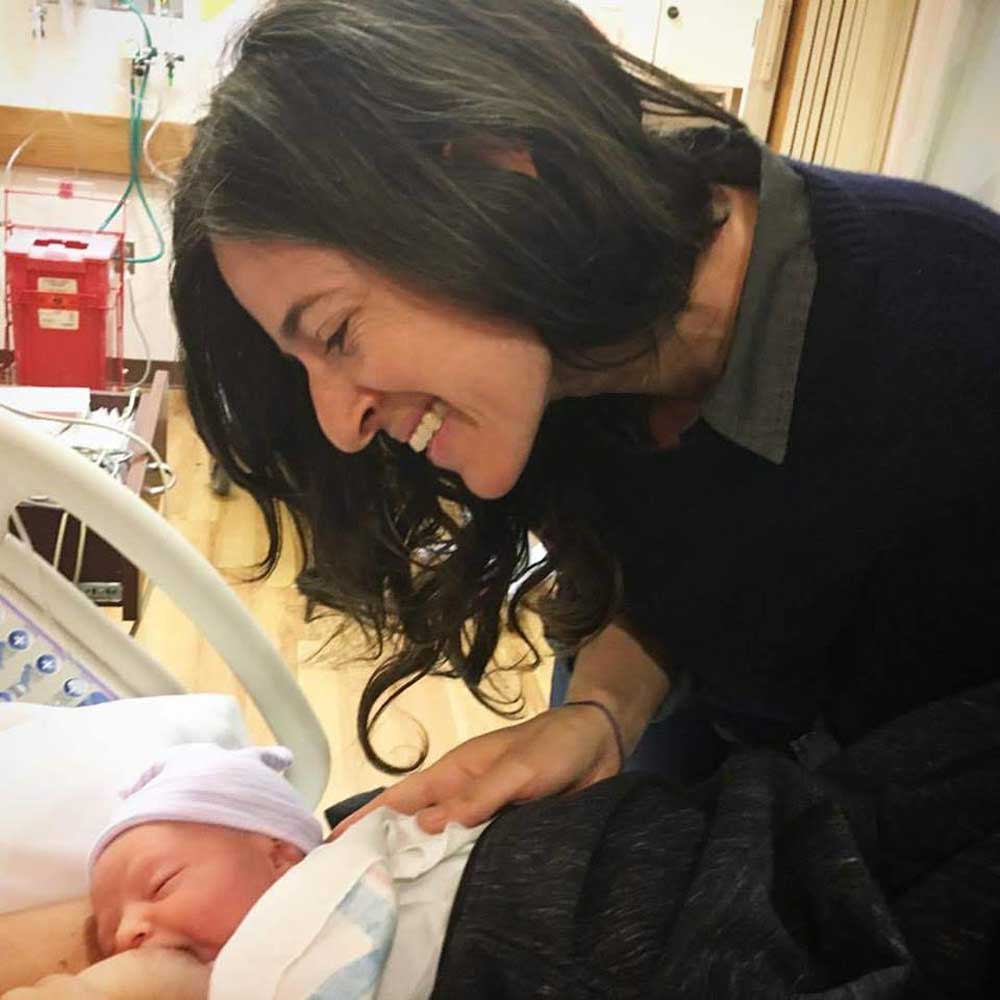What is A Doula and What Do Doulas Do?

A doula is a professional trained in childbirth who provides emotional, physical, and informational support to a birthing person (and, if applicable, their partner). Similar to hiring a broker to help you buy a home, a hiking guide to help you find your way up a mountain, or a consultant to help you plan your dream wedding, a doula helps an expectant family navigate its way through the often-intense, physically and emotionally challenging birthing process.
Whether it’s your first baby or your last, a doula can vastly improve your birth experience. According to the American College of Obstetricians and Gynecologists, one of the most effective tools to improve labor and delivery outcomes is the continuous presence of support personnel, such as a doula.
Here are 7 examples of what doulas provide to laboring people and their partners.
- Doulas provide physical support. Labor is physically challenging and doulas are trained in countless techniques to help you reduce or shift the sensations and discomforts of labor. Doulas are also trained to help you move into positions that may shorten your labor, by moving the baby into a more optimal fetal position. They may use massage, acupressure, warmth, cold, aromatherapy, water therapy, guided visualizations, calm presence, and more to help you find comfort and confidence.
- Doulas provide emotional support. Moving from pregnancy to parenthood is a huge transition. Labor can take people to emotional extremes. Doulas offer support in the form of reassurance, encouragement, companionship, anxiety-relief, deep listening, validation, and more. They’re the one person solely devoted to your emotional well-being during labor and will be there to help and guide you through the tears, pain, and joy while you birth your baby.
- Doulas provide informational support. Doulas can help parents find evidence-based information about the various choices they will have in pregnancy, birth, and the early postpartum period. Doulas can make suggestions for pain-relief techniques and comfort measures for childbirth including breathing, positioning, movements, and relaxation tricks. During labor, doulas can help explain medical procedures and can help the family understand what is going on.
- Doulas are your personal advocate. Birthing people should have the right to make informed decisions about their body and their baby. Doulas help create space for members of a birthing family to ask the questions they need in order to make the best decision for themselves during labor. Doulas help relieve the pressure to make quick decisions in non-emergent situations, and will help the birthing person speak up to ask questions and to share their preferences. Doulas will help strengthen the birthing person’s voice, ensuring that the family is able to communicate its wishes.
While doulas don’t speak directly on your behalf, they will make reminders and help you say what you need to say. Doulas do not (or should not) have an agenda for your birth. Their goal is to support your decisions. Finally, a doula is trained in the various interventions of childbirth and will be able to inform you if a care provider is about to perform an intervention without explanation or consent. - Doulas provide partner support. Partners are going through their own emotional experience during labor. Not only are they about to witness the birth of their new little human, it can be very challenging to see and support the person they love going through the intensity of labor.
- Doulas reduce medical intervention during labor. According to a meta-analysis of studies involving over 15,000 laboring people, doulas are positively associated with:
- increased spontaneous vaginal birth
- shorter labors
- decreased cesarean births
- reduced use of forceps or vacuums in vaginal births
- reduced use of any pain medications
- reduced use of epidurals
- reduced low five‐minute APGAR score (meaning babies born to people with doula care are more likely to be deemed clinically well at birth)
- no evidence of harm from continuous labor support
- Doulas increase people’s satisfaction with their births Critically, the meta-analysis also found that doulas reduced negative feelings about births. When people have someone supporting them continuously throughout labor, they report more positive feelings, no matter what happened during the birth. Doulas make sure that you feel heard and work hard for you to have agency during the birth process.

Now that you know what a doula is and what they do to help parents experience a positive and safe birth, we hope you will consider getting their invaluable support. At boober, we are here to help you find just the right doula for your labor.